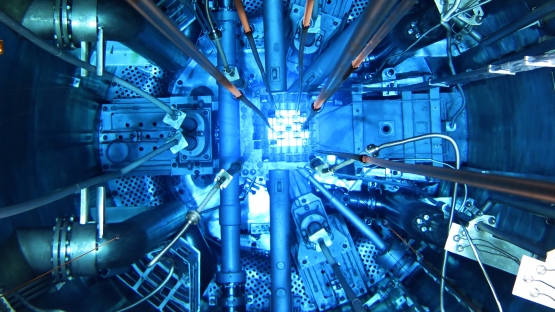Progress in research reactor safety as well as good practices and international cooperation in this field are being discussed at the fourth International Meeting on Application of the Code of Conduct on the Safety of Research Reactors, taking place this week in Vienna.
“Member States’ commitment to applying the Code is vital for ensuring safety,” said Juan Carlos Lentijo, IAEA Deputy Director General and Head of the Department of Nuclear Safety and Security. “Progress has been made in application of the Code, but challenges remain, particularly in relation to establishing and maintaining a strong culture for safety. Member States need to continue their efforts to achieve and maintain a high level of safety on the basis of the recommendations of the Code and the IAEA safety standards.”
The Code was adopted by the IAEA Board of Governors in 2004 as a non-legally binding instrument aiming at maintaining a high-level of safety at research reactors. It provides guidance to States for developing and harmonizing policies, laws and regulations on research reactors. It offers best practice guidance based on international consensus and forms a framework for international cooperation and information sharing on research reactor safety.
At the meeting, experts from 40 countries share their experience of applying the Code in many areas, including regulatory supervision, refurbishment and modernization of reactor components for safety improvements, as well as safety infrastructure for new research reactor projects. The participants will also share and discuss the results of self-evaluations they have made of their application of the Code.
“The meeting will assist Member States in their work to identify safety areas that need improvement, other challenges and strategies to address them,” said Amgad Shokr, Head of the Research Reactor Safety Section at the IAEA. “In addition, the meeting outcome will contribute to the IAEA’s programme on research reactor safety.”
The IAEA supports Member States in the application of the Code by organizing international and regional meetings, publishing safety standards and technical guides in all areas of research reactor safety, as well as by conducting peer reviews and safety missions based on the standards.
Research Reactors
Research reactors are small in size compared to nuclear power plants. For more than 60 years, these reactors have been centres of innovation and productivity for nuclear science and technology programmes around the world. They are used for education and training, to produce medical and industrial radioisotopes, to test material, and to improve agriculture and more. They also contribute to building expertise to support national nuclear power programmes.




